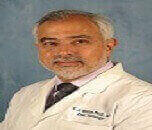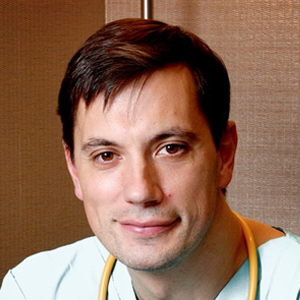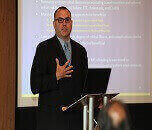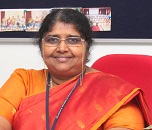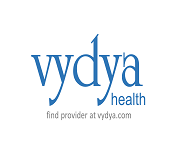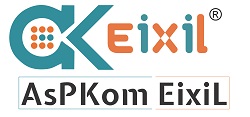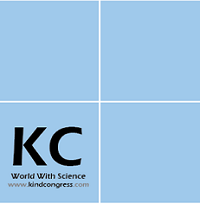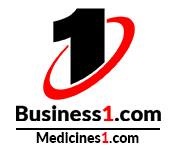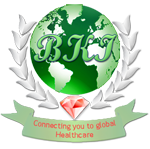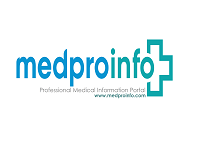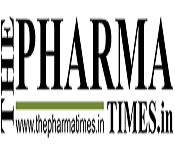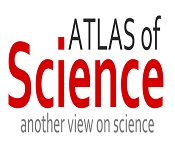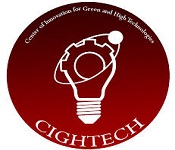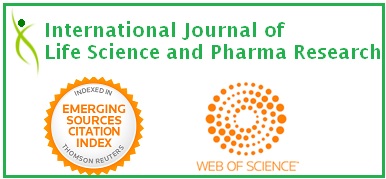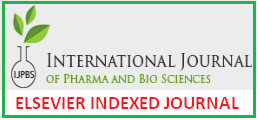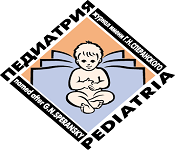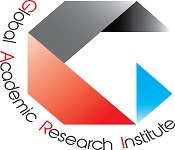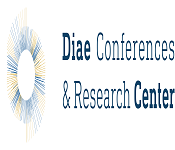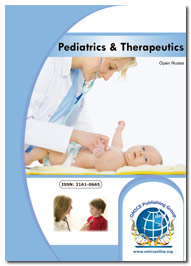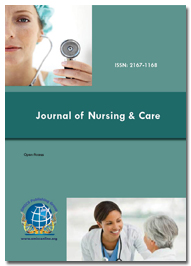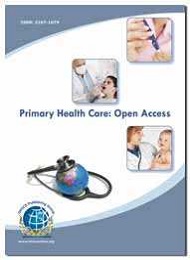Theme: Heal a child: Change the world
Health Care 2019
About Healthcare Conference 2019
On behalf of the organizing committee and global organizations, we take this opportunity to extend a warm welcome to all of you to participate at the 2nd Annual Conference on Pediatric Nursing and Healthcare scheduled during June 17-18, 2019 in Dubai, UAE which aims to keep you updated with the best and most advanced practices in the field of pediatrics, nursing and health.
This conference will bring together a wide audience of budding researchers, health care professionals, paediatricians, registered nurses, and academia and also from various disciplines. Healthcare offers a premier interdisciplinary gathering for all the scientific experts, doctors, nurses from all the medical fields who are looking to obtain continuing medical grades and willing to share latest innovations, ideas and applications in the field of healthcare and nursing.
The two days congress comprises of a variety of scientific sessions, symposiums, B2B meetings, workshops, panel discussions, poster presentations, young researcher forums conducted by the most outstanding and renowned speakers who excel in the field of pediatrics, nursing and healthcare. The conference also welcomes International exhibitions from corporate sectors to showcase the recent advancements in the tools and techniques.
Health Care 2019 covers a wide range of topics such as Pediatric Nursing, Pediatric Nursing and Healthcare, Nursing Education, Healthcare Management, Pediatric Immunity, Midwifery and Women’s health, Neonatal Nursing, Pediatric Primary Healthcare, Pediatric Oncology, Pediatric Nutrition, Pediatric Endocrinology, Obesity and Weight Management, Healthcare and Chronic Diseases etc.
Target Audience of Healthcare Conference:
-
Leading world doctors
-
Nurses
-
Pediatricians
-
Neonatologist
-
Professors
-
Child psychologist
-
Registered nurses
-
Companies and medical research institutions
-
Pharmacists
-
Physicians
-
Educator Societies
-
Pediatric Medicine Specialists
-
Healthcare and Nursing Associations and Societies
-
Manufacturing Medical Devices Companies
-
Healthcare technology companies
-
Business Entrepreneurs
Why to Attend Healthcare Conference?
Health Care Conference 2019 is an International stage to meet specialists and to share the views and knowledge related to Health measures and Nursing. Pediatrics is the specialty of medicine that cares for infants, children, and adolescents and involves their medical care, development and diseases. People should be motivated to learn about pediatrics and its advances in controlling the spread of infectious diseases in children and promoting a healthy lifestyle. It is a forum to explore topics of mutual interest, as well as to exchange knowledge, share evidence, ideas and generate solutions. We invite you to join us at the Health Care 2019 Conference, where you will be sure to have a meaningful experience with world famous professionals around the world.
Why Dubai?
Dubai is one of the seven emirates that make up the United Arab Emirates. It is considered as an eminent place for health, education, and is one of the prominent places to have the universities and universities estimated. It is the most modern city and it develops at an incredible pace in the tourist and commercial sectors especially.
Undoubtedly, the Dubai conferences play a crucial role in the promotion of scientific data and ideas around the world. There are also associations that work in the management of medical care for children and adults of any metabolic disorder. It can be considered as a reasonable means for the migration of important knowledge about research and novel advances throughout the world. Hospitals in the UAE are state of the art and provide high levels of clinical care. Health professionals get the opportunity to work in an exciting, thriving, modern location and a great lifestyle.
Conference Highlights of Health Care Conference 2019
Track 1: Pediatric Nursing
Pediatric nursing is a developing field in pediatric essential consideration and the scientific treatment of child from birth to puberty. Pediatric nurses perform physical exams and give guidance and support to the groups of patients. General pediatric gives nursing care to offspring of all the age groups who experience the chronic effects of medical and surgical conditions. Medical attendants instruct the parents to watch and expect important signs and reactions to treatments.
-
Health maintenance care
-
Delivery of immunizations
-
Pediatric Nursing in Changing Society
-
Routine developmental screenings
-
Diagnosis and treatment of common childhood illnesses
-
Developmental disorders
-
Patient advocacy
-
Infectious Diseases
-
Mental Disorders
-
Disabled Child Care
Track 2: Pediatric Nursing and Healthcare
The basic part of nursing specialists is to give the advantages of primary and specialized care services alongside the administration of the patient's history and physical examination. Pediatric medical attendants give assurance and serious consideration in all settings to youngsters and babies by performing physical exams, analysing diseases and injuries, giving guidance and support to patients' families. Nursing is the insurance, advancement and enhancement of wellbeing.
As per on-going studies, the quantity of kid mortality increases every year because of the absence advanced medicalcare equipment. Therefore, specialists and attendants are at the front line of decreasing death rates around the world.
-
Plan of care and Implementation of Treatment
-
Ensuring the Quality of Healthcare
-
Primary Health Promotion and Protection
-
Diagnosis of Health Status
-
Routine developmental screenings
-
Delivery of immunizations
-
Pediatric Nursing in Changing Society
-
Alcohol and drug abuse
-
Child trafficking
-
Pediatric Dentistry
-
Pediatric Pulmonology
Track 3: Neonatal Nursing
The neonatal is a solid purpose of the nursing that works with children with a progression of issues that happen due to absence of precautionary measure, the delivery of births, contamination and the surgical issues. Neonatal nursing (neo means new and natal means birth) is a nursing division that care for the new-conceived babies up to 28 days after birth. Children conceived with a multiple issues going from prematurity, birth abandons, disease, heart abnormalities and surgical issues are under neonatal nursing. Attendants who work in the neonatal task are a fundamental piece of the neonatal consideration group and are required to know the essential rejuvenation of the new-born baby, control the temperature of the child and know the beginning of cardiopulmonary monitoring and heartbeat oximetry.
-
Special care for premature indisposed infant
-
Extensive care in critically and complex infants
-
Surgical problem
-
Clinical Nursing in Neonatal
-
Standard of Neonatal Nursing Practice
-
Innovations in Patient Care
Track 4: Pediatric Primary Healthcare
Pediatric medicinal care incorporates the physical, mental and social prosperity of youngsters from embryonic stage to puberty. Primary care is the day by day medicinal consideration given by a health care provider. The medical attendant works in an assortment of settings, for example, community settings, including community health sector, and functions within social service settings.
Patients more often receive primary care from specialists, for example, a physician (general professional or family specialist), a medicinal assistant professional (master in adult gerontological child rearing, a family child rearing proficient or a pediatric medical assistant) or a medical associate. Depend upon the possibility of the wellbeing condition, patients can be allowed for secondary or tertiary consideration.
-
Primary health promotion and protection
-
Plan and implementation of treatment
-
Ensuring the quality of healthcare
-
Infant primary healthcare
-
Child primary healthcare
-
Adolescence primary healthcare
Track 5: Midwifery & Women health Nursing
Midwifery is otherwise called obstetrician is the health profession that deals with pregnancy, child birth, postpartum period. The specialist who is a prepared proficient has an important task in counselling and education in health, for ladies, as well as inside the family and the community. Women have a different medical issue. Women can have a sound pregnancy by getting early and standard pre-birth care. Ovarian tumour, uterine development, vaginal growth, cervical development and vulvar malignancy can be relieved by health nursing services for women.
-
Child birth and preterm birth prevention
-
Midwifery health science
-
Obstetric complications
-
Pregnancy nutrition
-
Perinatal and reproductive health
-
Breeding cycle management
-
Maternal and child health
-
Cardiac diseases and disorders in Women
-
Hypertension and diabetes and their management in women
-
Nursing care during child birth
-
HIV / AIDS among women and treatment
Track 6: Breast feeding and Family Nursing
Breast feeding is an act of genuine love. Feeding the infant not just gives great nourishment; it additionally gives the chance to keep the new-conceived close and emotionally associated with one another. Before producing milk from a new mother, they discharge a thick, yellow substance called colostrum, which has immunological properties and builds up the child's immune system and advances the development and improvement of new-borns. Breast milk ensures the infant against disease, which is available in more prominent in the second year of life than in the first. To progress and ensure breastfeeding, each exertion must be made to restrict contraindications to breastfeeding. Family nursing distinguish wellbeing nursing needs of every family, to teach and guide other family members, to develop health propensities and keep up physical, mental, spiritual environment.
-
Health benefits of breast feeding
-
Neoplasms
-
Fibrocystic breast changes
-
Infections and inflammations
-
Abnormal nipple conditions
-
Optimal functioning for individual
-
Identify health and nursing needs and problems
-
Cultivate good personal health habits
-
Develop self-care abilities
Track 7: Pediatric Oncology
Pediatric oncology is a specialization in medicine identified with the diagnosis and treatment of malignant growth in youngsters and children, for the most part up to 18 years. The treatment of childhood cancer relies upon a few variables, including the sort and phase of the disease, conceivable symptoms, family preferences and the general health of the child.
It is seen that the solid extra skull tumor is known as neuronal blastoma which is found for the most part in childhood disease. It is considered as Pediatric embryonal cancer of a sympathetic sensory system which will rise up from neuroblasts (pluripotent thoughtful cells).
-
Brain tumours
-
Lymphomas
-
Neuroblastoma
-
Hepatoblastoma
-
Chemotherapy
-
Immunotherapy
-
Oncology nursing and care
-
Focus on translational research
Track 8: Pediatric Nutrition
Pediatric nutrition is a well-balanced diet comprising of the basic supplements and sufficient caloric intake important to advance development and keep up physiological requirements at various periods of the child's improvement and development. Pediatric nutrient must comprise of basic nutrients and minerals which help for the development and advancement. The proportion of vitality required for metabolic maintenance, development should help with perfect supplements. Adolescence is the following stage in which one needs larger measure of supplements since numerous hormonal changes are happens at that period. Obesity and underweight are the two issues which happen because of absence of nutritional information. An adequate ingestion of enhancement rich eating routine is incredible nourishment.
-
Preventive measures in diet
-
Medications
-
Parental nutrition
-
Complementary feeding
-
Nutritional assessment
-
Diagnosis techniques for pediatric malnutrition
-
Nutrient deficiencies and disorders
-
Health and nutritional status and feeding practices
-
Vitamins
-
Food allergies in pediatrics
-
Long term health
Track 9: Pediatric Immunity
Pediatric immunology is a part of pediatrics that handles immunological or allergic disorders in kids. It accepts a genuine part in the comprehension of the major cell and subatomic instruments of the resistant framework and has been truly incorporated into the enhancement of new investigative tests and treatment. A part of the principle issue of pediatric immunology is community obtained diseases, complications of immunization, HIV and pediatric AIDS or acquired insusceptible deficiencies.
-
Congenital or acquired immune deficiencies
-
Vaccination and complications
-
Hepatitis B
-
Diphtheria, Tetanus, Acellular Pertussis (DTAP)
-
Clinical immunology
-
Developmental immunology
-
Immunotherapy
-
Cancer immunology
-
Reproductive immunology
Track 10: Pediatric Endocrinology
Pediatric endocrinology is a therapeutic subspecialty that oversees improvement issue and sexual detachment in youth, and neonatal diabetes and the issue not the same as the endocrine organs. The endocrine system discharges hormones that are compound substances managing different critical body capacities. A few pediatric endocrinologists have concerns and authority in the system of bone preparing, the lipid digestion structure etc. It especially oversees thyroid illness in children, neonatal diabetes and hyper-insulin, development issue, Type 1 diabetes, Diabetes, hyperglycaemia, Adrenal and pituitary issues.
-
Diabetes mellitus (Type 1 & Type 2)
-
Hypothyroidism
-
Hyperthyroidism
-
Disorders of puberty
-
Congenital Adrenal Hyperplasia (CAH)
-
Turner syndrome
-
Disorders of sexual differentiation
-
Growth disorders
-
Diagnosis & treatment
-
Hormone Disorders
-
Thyroid disease in children
-
Trauma
Track 11: Pediatric Gastroenterology
Pediatric gastroenterology is the part of medicine that deals with the diseases of the gastrointestinal (GI) tract. Sensitivities of gastrointestinal nourishment are normal in new-conceived child. These conditions may persist during childbirth or at a later stage as the child grows. Common examples include hypersensitivities, colitis, anorexia and bulimia, celiac diseases, Cohn's illness, diarrhoea, gluten sensitivity, irritable bowel syndrome and other related digestive and elimination problems. The diseases related to pediatric gastroenterology are gastritis, persistent arcades and problems with the improvement of the gastric tract.
-
Pediatric endoscopy and imaging
-
Complex gastrointestinal surgery & risk factors
-
Childhood cirrhosis
-
Persistent vomiting
-
Infant regurgitation
-
Short bowel syndrome
-
Effect of nutrition on gastric tract, enterocolitis
-
Necrotizing enterocolities
-
Gastroschisis
-
Omphalocele
Track 12: Pediatric Obesity and Weight Management
Pediatrics Obesity is a condition in which the abundance of muscle-to-fat proportions negatively affects the prosperity of a youngster. The primary cause of overweight relies upon genetics and hereditary issues. It is hard to estimate particularly the proportion of muscle to fat; called Body Mass Index (BMI) is utilized to assess it. The BMI utilizes the weight and tallness of a child to think about a result. The result is differentiated for posterity of a comparative sexual introduction between the ages of 2 and 20 years. Pediatric overweight prompts hazardous ailments like Risk for heart diseases and Diabetes, High blood pressure and Bone issues.
-
High blood pressure
-
Risk for Diabetes
-
Bone problems
-
Nutritional assessment
-
Healthy eating
-
Areas of adipose fat distribution
-
Dietary modification and exercise pattern
-
Underweight and its treatment
-
Obesity and FTO
-
Hypoventilation syndrome
Track 13: Healthcare and Chronic Diseases
A chronic condition is a long term therapeutic condition which can't be prevented by vaccines or relieved by drug and become more typical with age. Destructive health behaviors, for example, smoking, absence of physical movement and unfortunate dietary patterns are the fundamental supporters to affect by the chronic diseases. Epidemiologists have decided enthusiasm for persistent circumstances because of the reality they add to disease, disability, and decreased physical and/or intellectual ability.
-
Primary healthcare in Hepatitis
-
Challenges in chronic illness
-
Epidemiology
-
Chronic pain
-
Vaccination for chronic diseases
-
Lifestyle factors
-
Prevention of chronic diseases
Track 14: Nursing Education
Nursing Education is a hypothetical preparing to the medical attendants and sets them up for their professional duties. The preparation and training is instructed by experienced nurses and medical expert who are qualified in their respective fields. The courses range from general nursing to mental health nursing, pediatric nursing, post-operatory nursing and more. Restorative chaperon Educators helps nursing understudies for Continuing Nursing Education (CNE). Nursing Education and Research intended to build up the proof about the issues and significance to the nursing profession, including nursing practice, nursing training, nursing morals and nursing informatics. New innovations are utilized for nursing practice which amplifies the quality of nursing.
-
Innovations in nursing education
-
Faculty development
-
Clinical pharmacokinetics
-
Issues on premature infant
-
Neonatal nurse practitioner education
-
Registered nursing (RN)
-
Education trends and impact on nursing practice
-
Continuing Nursing Education
-
Nursing programs and courses
-
Teaching Strategies
-
Competence in Nursing Education
-
Online nursing programme
-
Quantitative researches
-
Nursing information
-
Robotic nursing
Track 15: Health Care and Management
The Management is a system to harmonize the administrations given by healthcare associations. Health management incorporates public health management, dietary administration, doctor's facility administration, medical tourism, medicinal informatics, bioinformatics, telemedicine, health economics and different sorts of integration and maintenance based on software events and records related to medical care. It additionally refers to the health administration, which is the organization or supervision of healthcare sectors, public health systems and systems of thorough clinics or other medical offices. It incorporates nursing with information and correspondence innovations to advance the health of people, families and communities all around the world.
-
Healthcare marketing and industry
-
Finance and statistics
-
Advances in healthcare
-
Health care research
-
Health information technology
-
Health Care Financing
-
Medicinal healthcare
-
Public health
-
Healthcare systems and functioning
-
Occupational health and safety
-
Health Policy
TRACK-16: Artificial Intelligence in Healthcare
Artificial Intelligence (AI) and Machine Learning (ML) have just begun making advances into different industries. Healthcare is rising as one of the greatest recipients of the AI revolution. The innovation is fit for encouraging simple and secure access to patient medicinal information, understanding and analysing their conditions.
There are significant challenges in this field that include: the acceptance of AI applications in clinical practice, initially to support diagnostics; the ability to leverage the confluence of personal networked devices and AI tools.
-
Managing Medical Records and Other Data
-
Treatment Design
-
Digital Consultation
-
Drug Discovery
-
Health Monitoring
-
Precision Medicine
-
Virtual Nurses
-
Digital Consultation
Scope and Importance of Healthcare Conference 2019
Health Care 2019 is an excellent opportunity for all physicians, business analysts, scientists, research scholars, students from all over the world in one place to exchange their knowledge about their field of interest and their research work. Nursing is one of the fastest growing fields, and has a strong job market, which makes it very attractive for people looking for a new or first career.
The achievements in health throughout the world during this century and particularly in recent years are quite spectacular. The role and importance of health systems within the quality of life and well-being in the trendy society are widely recognized. In considering the above, this conference will be the best place to share experiences and best practices through invited papers, plenary lectures, symposia, workshops, invited sessions and posters that cover a variety of important issues that affect us all, from the research until the practical implementations. We hope that Health Care 2019 Conference will inspire a number of health care organisations and researchers in this International Conference.
The evidence shows that patients receiving care in hospitals with active research have better health outcomes. This is because the active research hospital can offer effective treatment options and more opportunities to be included in clinical trials. Patients who participate in clinical trials have also shown that they have increased their time with members of the clinical team.
Conducting high quality research by health institutions leads to financial support for this work from health organizations, different pharmaceutical companies and universities. Many health professionals have discovered that clinical research provides an alternative and rewarding career. This can be exceptionally advantageous when the research leads to real benefits for patients.
Universities associated with Neonatal and Pediatric Research:
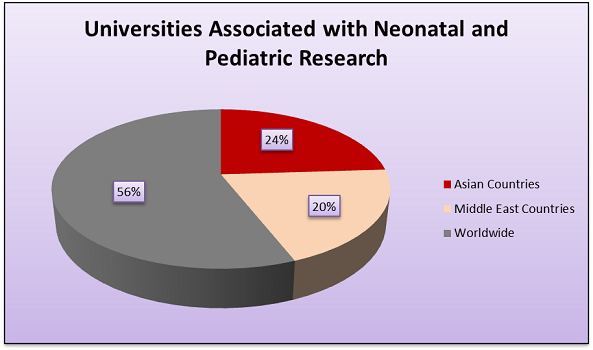
Business value:
With the increase in medical care expenses and increasing doubts about the efficiency of current health care systems, due to the increasing number of incidents and medical problems, the decision makers and the policies of the healthcare industry Health have begun to adopt new techniques and management strategies to reduce prices and increase the quality of medical care, in other words, maximize value and minimize waste. More investment in information technology has been one of these new techniques.
Estimated Investors in Healthcare:
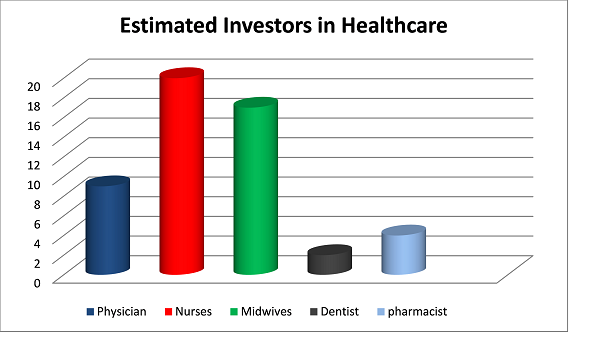
Health care in the Middle East
With fast-growing economies linked to oil, tourism and the financial industry, the countries in this area have a large population of expatriates from around the world. New, state-of-the-art hospital complexes and high-tech equipment, along with many well-qualified employees, serve the growing prospects of national citizens.
Birth Rate in Middle East:
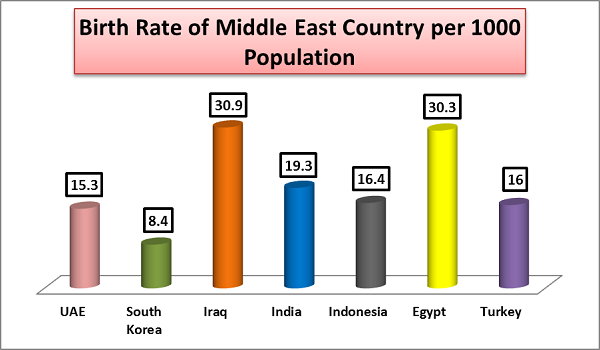
The Middle East has a long and long history of leadership in the world of medicine, dating back hundreds of years. As these countries determine the best way to address their current public health problems, which are the same problems faced by countries around the world, they have another opportunity to influence the future of health care globally and help to lead a global movement for true health management of the population.
Related Conferences
-
28th World Neonatal, Pediatric and Family Medicine Conference, March 21-22, 2019, Dubai, UAE
-
International Conference on Pediatrics, Nursing and Healthcare, April 11-12, 2019, Abu Dhabi, UAE
-
27th International Diabetes and Healthcare Conference, July 18-19, 2019, Abu Dhabi, Dubai
-
International Pediatrics, Infectious Diseases and Healthcare Conference, November 18-19, 2019, Abu Dhabi, UAE
-
23rd World Congress on Pediatrics, Neonatology & Primary Care, November 21-22, 2019, Dubai, UAE
-
Annual Midwifery and Pediatric Nursing Conference, November 25-26, 2019, Dubai, UAE
-
30th World Nurse Practitioners & Healthcare Congress, May 27-28, 2019, Istanbul, Turkey
-
22nd Global Summit on Pediatrics, Neonatology & Primary Care, May 30-31, 2019, Istanbul, Turkey
-
23rd International Conference on Primary Healthcare and Emergency Nursing, April 29-30, 2019, Helsinki, Finland
-
23rd World Nutrition & Pediatrics Healthcare Conference, April 29-30, 2019, Helsinki, Finland
-
13th World Pediatric Congress, December 02-03, 2019, Helsinki, Finland
-
International Conference on Maternal, Fetal and Neonatal Medicine, May 30-31, 2019, Istanbul, Turkey
-
2nd Annual Nursing Congress: The Art of Care, May 27-28, 2019, Istanbul, Turkey
-
14th World Congress on Healthcare and Medical Tourism, July 18-19, 2019, Abu Dhabi, Dubai
Fat Cells Make your Skin Look Younger!
Babies have the cutest, chubbiest little cheeks while youth have the different skin texture. Newer research draws a correlation between dermal fibroblasts (fat cells) and younger-looking, supple skin. Dermal fibroblasts naturally boost collagen as well as produce laminin, fibronectin, and other protein molecules which protect the skin’s barrier.
When we pass our teen age, our collagen and elastin start to decrease and the skin becomes looser. When we’re young, our face becomes inverted triangle or heart shape appearance. As we get older, the face becomes squarer or bottom heavy, which gives an older, more tired appearance. So, fat has a major role in it.
Researchers discovered that dermal fibroblasts are responsible for protecting against bacterial infections in our body too.
Foods like fish legumes, nuts, seeds, and broccoli are packed with vitamin C, omega-3 fatty acids which naturally boost collagen formation and restoring damaged collagen. It also prevents environmental toxins from wreaking havoc on our skin as well as help speed up cell turnover rate. This process is essential for glowing and healthy looking skin.
Breastfeeding may decrease Eczema Risk in Kids
According to a new study, it is proved that, Children who were breastfed in their first few months of life were comparatively less likely to develop the chronic skin condition known as eczema. Eczema causes extremely itchy skin, which, when scratched and covered with blisters that crack easily.
For the study, researchers analysed by taking the data of dietary patterns of 1,520 children in the United States. When they were 6, approximately 300 of the children had been diagnosed with eczema at some point in their lives and family history of food allergies were also likely to have been diagnosed with eczema by age of 6.
But as per the researcher’s view, children who were exclusively breastfed for at least three months from their birth were only 48 % to have continued eczema at the age of 6, compared with those who were never breastfed or who were breastfed for less than three months. Breastfed infants have a lower risk for many chronic conditions like asthma and obesity.
Conference Highlights
- Pediatric Nursing
- Pediatric Nursing and Healthcare
- Neonatal Nursing
- Pediatric Primary Healthcare
- Midwifery & Women health Nursing
- Breast feeding and Family Nursing
- Pediatric Oncology
- Pediatric Nutrition
- Pediatric Immunity
- Pediatric Endocrinology
- Pediatric Gastroenterology
- Pediatric Obesity and Weight Management
- Healthcare and Chronic Diseases
- Nursing Education
- Health Care and Management
- Artificial Intelligence in Healthcare
To share your views and research, please click here to register for the Conference.
To Collaborate Scientific Professionals around the World
| Conference Date | June 17-18, 2019 | ||
| Sponsors & Exhibitors |
|
||
| Speaker Opportunity Closed | Day 1 | Day 2 | |
| Poster Opportunity Closed | Click Here to View | ||





